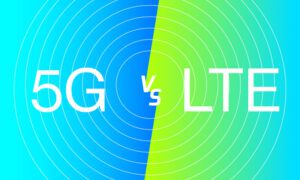When it comes to e-commerce, transaction fees can make or break your bottom line. That’s why we’re taking a closer look at three popular payment processors: Stripe, Sumuo, and Square. Let’s break down their transaction fees and compare merchant services side-by-side.
First up is Stripe. This processor charges a flat rate of 2.9% + $0.30 per transaction for online payments. However, if you’re using Stripe for in-person transactions (e.g., through the Stripe Terminal), the fee jumps up to 2.7% + $0.05 per swipe/dip/tap.
Next is Sumuo, a newer player in the payment processing world. Sumuo offers transparent pricing with a flat rate of 2.69% + $0.30 per transaction for all payment types (online, in-person, and virtual terminal).
Finally, we have Square, which also offers transparent pricing but with some variations based on payment type and volume. For online transactions, Square charges 2.9% + $0.30 per transaction; for in-person payments, the fee drops to 2.6% + $0.10 per swipe/dip/tap; and for virtual terminal payments (i.e., manually entering a card number), the fee goes up to 3.5% + $0.15 per transaction.
So which one is right for you? It depends on your business needs and how you plan to accept payments. If you’re looking for consistency across all payment types, Sumuo may be your best bet with its flat-rate pricing model. However, if you’re processing larger volumes or want more versatility in payment options (like virtual terminals), Square or Stripe may be worth considering despite their slightly higher fees.
Overall, understanding these transaction fees can help you make informed decisions about which payment processor will work best for your business goals and budget constraints!
Factors that Affect Transaction Fees: A Deep Dive into Payment Gateway Pricing
When it comes to choosing a payment gateway provider, knowing the factors that can affect transaction fees is crucial. Transaction fees are the cost that merchants pay for processing payments through a payment gateway provider. Generally, transaction fees are made up of interchange fees (paid to banks) and markup fees (paid to payment gateway providers). However, there are several other factors that can impact transaction fees.
One factor is the type of card being used. Credit cards typically have higher interchange fees than debit cards, and rewards cards often have higher interchange fees than non-rewards cards. Another factor is whether the transaction is swiped or key-entered. Swiped transactions have lower interchange rates because they carry less risk than key-entered transactions.
The average ticket size is another factor that can affect transaction fees. Payment gateway providers often charge a higher percentage fee for smaller transactions. Furthermore, some payment gateways may charge additional flat-rate fees for certain types of transactions or for processing in foreign currencies.
Lastly, different payment gateway providers may offer different pricing models that affect transaction fees. Some providers may offer rates based on volume or tiered pricing depending on monthly sales volume.
In conclusion, understanding the various factors that impact transaction fees is critical when choosing a payment gateway provider. By taking these factors into account and carefully comparing your options, you can ensure you’re getting the best value for your business needs.
Comparing Stripe, Sumuo, and Square: Which Payment Processor is Right for You?
Payment processing is a crucial aspect of any online business. Therefore, it is essential to choose the right payment processor that can handle your transactions effectively and efficiently. If you’re looking for the best option in terms of transaction fees, then Stripe, Sumuo, and Square are three popular choices.
Stripe is known for its simplicity and ease of use. It charges a 2.9% transaction fee plus $0.30 per transaction, which is considered relatively standard for most payment processors. However, Stripe also offers features such as fraud protection and support for subscriptions that make it stand out from others.
Sumuo, on the other hand, has a unique fee structure that includes no setup or monthly fees but charges a higher percentage fee per transaction at 3.49%. Despite this slightly higher fee rate, Sumuo’s mobile POS system makes it a great choice for small businesses with low volume transactions or those who want to take payments on-the-go.
Lastly, Square has gained popularity due to its all-in-one platform that provides both hardware and software solutions. Its flat-rate pricing model of 2.6% + $0.10 per transaction is ideal for businesses with high volume transactions as there are no hidden fees or additional costs.
When it comes down to choosing between these options, consider your specific business needs and requirements before making a decision. For example, do you need features like fraud protection? Are you a small business with limited resources or high volume sales? Once you have answered these questions, assess which payment processor aligns with your needs to ensure seamless transactions and success in online commerce operations!
Understanding Transaction Fees in Online Payment Processing
Understanding the transaction fees in online payment processing can be a bit confusing, especially when you have options like Stripe, Sumuo, and Square with varying rates. But fear not, my fellow business owners and finance enthusiasts, for I am here to break down the nitty-gritty details of these payment processors.
First up is Stripe. They charge 2.9% + 30 cents per successful transaction in the US. The rate may vary depending on your country and currency but it generally stays within that range. Stripe also offers volume discounts for businesses with high sales volume.
Next is Sumuo. Their transaction fee is a flat 3% per successful transaction plus a fixed fee of 30 cents per transaction in USD. However, their fees vary for international transactions and currencies.
Lastly, there’s Square. Similar to Stripe, they charge 2.9% + 30 cents per successful transaction in the US. They also offer point-of-sale hardware to make accepting payments easier for brick-and-mortar stores.
When it comes down to choosing which payment processor to use, it ultimately depends on your business needs and priorities – whether it’s convenience or lower fees that matter most to you. It’s important to do your research and compare different processors before making a decision.
So go forth my fellow entrepreneurs and dive into the world of online payment processing with confidence!
Conclusion
Overall, the transaction fees for online payment processing can vary depending on a variety of factors such as the payment gateway used, transaction type, and overall processing volume. It’s important to consider these factors when choosing a payment processor that fits the needs of your business. In our comparison of Stripe, Sumuo, and Square, we found that each processor had their own strengths and weaknesses in terms of pricing structure and features offered. Ultimately, the best choice for your business will depend on your specific needs and preferences. By understanding the factors that affect transaction fees and comparing different payment processors, you can make an informed decision that minimizes costs while maximizing efficiency and customer satisfaction.
FAQ
Are there any additional fees or charges for chargebacks?
Yes, all three payment processors charge a fee for chargebacks. Stripe charges $15 per disputed transaction, Sumuo charges $15 per dispute (regardless of the outcome), and Square charges $20 per disputed transaction.
Can I negotiate transaction fees with these payment processors?
It is unlikely that you can negotiate transaction fees with these payment processors as they have set pricing structures. However, some may offer volume discounts or custom pricing for larger businesses.
Do these payment processors offer support for international transactions?
Yes, all three payment processors offer support for international transactions in multiple currencies. However, fees may vary depending on the country and currency used.
How long does it take to receive payments with these payment processors?
Typically, payments are processed within 1-3 business days and then deposited into your bank account. However, this may vary depending on your bank’s processing times.
Do these payment processors offer fraud protection?
Yes, all three payment processors offer fraud protection features such as PCI compliance and two-factor authentication. Stripe and Square also offer additional fraud prevention tools such as machine learning algorithms and customizable rulesets.



































